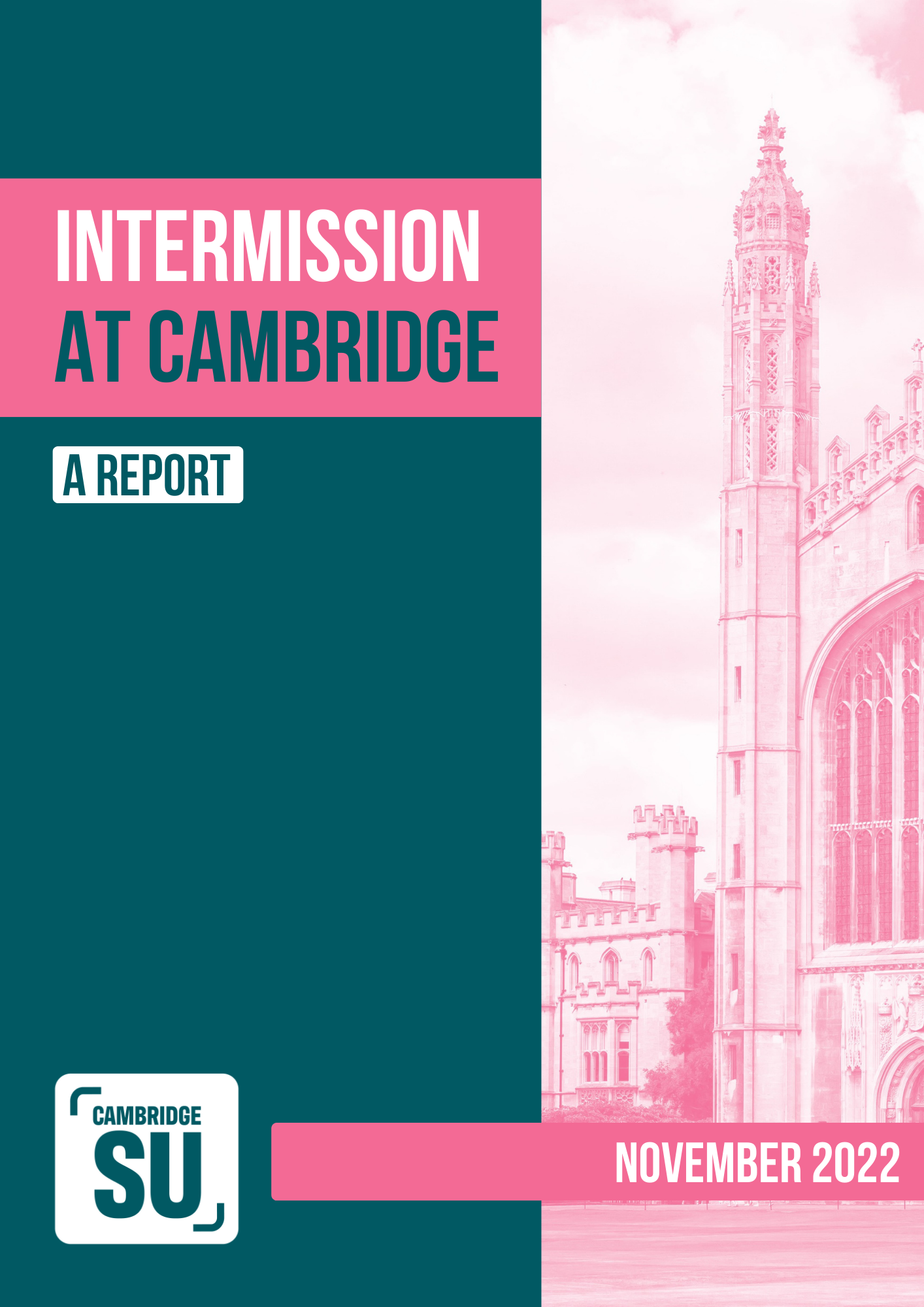A key priority for us this year is to reform the systems of ‘Intermission’ and ‘Fitness to Study’.
Intermission is the process of taking a break from your studies. Check out our FAQs below for more information.
We conducted a survey collecting student feedback on intermission and have released a report with our findings which you can find below. To discuss the report and where to go next, come along to our Welfare Forum on November 24th (open to anyone) on the theme of 'Intermission'.
Intermission Report
Cambridge SU's Welfare & Community Officer and Disabled Students' Officer, 2022-23

Check out this video below of Daisy summarising the key findings of the report:
Updates
There are no current news articles.
Intermission FAQ's
Intermission is the act of taking a formal break from your studies. It usually involves taking an extended period of time (often a full year) away from the University. People intermit for many reasons, but a common one is for mental health or medical reasons. Postgraduate students can also intermit for non-medical intermission, which allows for things like parental leave or opportunities to pursue other internships.
Both Undergraduate and Postgraduate students can intermit, however the processes are slightly different. Undergraduate students intermit through their college, but the majority of Postgraduate students can self-refer for intermission.
Who decides how the Intermission process works?
Each intermission ‘case’ must be approved by the Examinations Access and Mitigation Committee. Postgrads can apply directly to the EAMC but undergraduates must have their college apply on their behalf. The individual college decides exactly how the process is carried out and what college-level support is given to the student or rules they must follow (such as if they are allowed to visit college grounds). The central University Support Services (such as the Accessibility Disability Resources Centre, the University Counselling Service and the Mental Health Advice Service ) can independently decide what support is given to students, but this is heavily dependent on University agreed rules and funding.
What’s the difference between ‘Intermission’ and ‘Fitness to Study’?
Intermission is the act of willingly taking a break from your studies, and the student must agree to the process. ‘Fitness to Study’ is a procedure that can result in a student being suspended which is essentially a forced intermission. The procedure is initiated by College or University staff if the are concerns a student is not fit to continue studying (for a variety of reasons, but often related to mental health). It generally starts with a supportive process but this can be escalated to a panel stage in which people, often academic staff, decide whether a student should be suspended.
Where can I find support relating to intermission?
If you would like advice surrounding the intermission process or your own experience, please contact the SU Student Advice Service (advice@cambridgesu.co.uk) who can provide impartial, independent advice. Check out our website for resources.